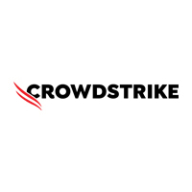


Microsoft Defender for Cloud and CrowdStrike Falcon Cloud Security are competing cloud security solutions. Based on the review, Microsoft Defender may have the advantage for organizations in the Microsoft ecosystem due to its integration and pricing within Azure.
Features: Microsoft Defender for Cloud provides seamless integration with Azure services, offering multi-cloud visibility, security recommendations, compliance assessments, and threat protection. CrowdStrike Falcon Cloud Security's strengths lie in its lightweight nature, AI-driven threat intelligence, and efficient endpoint detection, ensuring minimal resource impact.
Room for Improvement: Microsoft Defender for Cloud could improve its user interface and simplify setup and multi-cloud integration. CrowdStrike Falcon could enhance its support portal, streamline third-party integrations, and address cost concerns and support responsiveness.
Ease of Deployment and Customer Service: Microsoft Defender for Cloud offers straightforward deployment for Azure users, but customer service experiences vary, with premium support rated higher. CrowdStrike Falcon benefits from its cloud-native architecture for easy deployment and generally effective support, although some users experience long resolution times.
Pricing and ROI: Microsoft Defender for Cloud is competitively priced for Azure users, with some concerns about pricing complexities. CrowdStrike Falcon is seen as costly yet justified due to its feature set. Both solutions reportedly offer good ROI by improving security postures and reducing breach risks, with Microsoft offering additional value for Azure-centric organizations.
The detailed information PingSafe gives about how to fix vulnerabilities reduces the time spent on remediation by about 70 to 80 percent.
After implementing SentinelOne, it takes about five to seven minutes.
Cloud Native Security does offer ROI.
More than 12 million vulnerabilities have been identified and resolved while working with CrowdStrike Falcon Cloud Security over the past 10 years.
It is an expense we are willing to pay to conform to Cyber Essentials Plus and demonstrate responsibility in protecting our data and that of our partners.
Defender proactively indexes and analyzes documents, identifying potential threats even when inactive, enhancing preventative security.
Identifying potential vulnerabilities has helped us avoid costly data losses.
The biggest return on investment is the rapid improvement of security posture.
When we send an email, they respond quickly and proactively provide solutions.
They took direct responsibility for the system and could solve queries quickly.
Having a reliable team ready and willing to assist with any issues is essential.
Based on my experience with CrowdStrike Falcon Cloud Security's technical support, I would rate them a solid 10 out of 10.
Technical support is quite good.
I have contacted customer service, and they are fast.
Since security is critical, we prefer a quicker response time.
The support team was very responsive to queries.
They understand their product, but much like us, they struggle with the finer details, especially with new features.
I would rate it a 10 out of 10 for scalability.
Scalability is no longer a concern because Cloud Native Security is a fully cloud-based resource.
I would rate the scalability of PingSafe 10 out of 10.
It is deployed across multiple departments and multiple locations.
CrowdStrike Falcon Cloud Security is indeed highly scalable, ideally for enterprises with a minimum of 2,000 servers to ensure cost efficiency and easier setup.
We are using infrastructure as a code, so we do not have any scalability issues with Microsoft Defender for Cloud implementation because our cloud automatically does it.
It has multiple licenses and features, covering infrastructures from a hundred to five hundred virtual machines, without any issues.
Defender won't replace our endpoint XDR, but it will likely adapt and support any growth in the Microsoft Cloud space.
It's a reliable solution that the organization is increasingly adopting for its robust features and security.
We contacted Cloud Native Security, and they addressed it in a day.
The only downtime we had was when switching from V1 to V2 but it was smooth.
Occasionally, when the workload increases, it slows down considerably and sometimes becomes unresponsive.
When evaluating the stability of CrowdStrike Falcon Cloud Security, their partnerships with all major cloud service providers ensure their servers are optimally positioned.
Defender's stability has been flawless for us.
Microsoft Defender for Cloud is very stable.
Microsoft sometimes changes settings or configurations without transparency.
If they can merge Kubernetes Security with other modules related to Kubernetes, that would help us to get more modules in the current subscription.
As organizations move to the cloud, a cloud posture management tool that offers complete cloud visibility becomes crucial for maintaining compliance.
I would also like to see Cloud Native Security offer APIs that allow us to directly build dashboards within the platform.
If CrowdStrike Falcon Cloud Security could implement pushing out remediation from the sensor installed on machines, that would be beneficial.
The user interface needs improvement as it's sometimes difficult to locate specific dashboards or reports.
Another issue is the lack of proper documentation.
Microsoft, in general, could significantly improve its communication and support.
It would be beneficial to streamline recommendations to avoid unnecessary alerts and to refine the severity of alerts based on specific environments or environmental attributes.
The artificial intelligence features could be expanded to allow the system to autonomously manage security issues without needing intervention from admins.
I believe the enterprise version costs around $55 per user per year.
There are some tools that are double the cost of Cloud Native Security.
I recall Cloud Native Security charging a slightly higher premium previously.
The pricing for CrowdStrike Falcon Cloud Security is reasonable, especially for small companies with limited budgets.
No additional cost for maintenance or support; it's all included in the quotation.
However, the main point is that even though it is expensive, it provides a huge capability to the organization.
Every time we consider expanding usage, we carefully evaluate the necessity due to cost concerns.
We appreciate the licensing approach based on employee count rather than a big enterprise license.
Microsoft Defender for Cloud is pricey, especially for Kubernetes clusters.
This helps visualize potential attack paths and even suggests attack paths a malicious actor might take.
The infrastructure-as-code feature is helpful for discovering open ports in some of the modules.
This tool has been helpful for us. It allows us to search for vulnerabilities and provides evidence directly on the screen.
It automatically blocks duplication and activities that could result in data loss, effectively preventing unintended copying of data to personal devices.
The threat detection capability of CrowdStrike Falcon Cloud Security has always been the major seller, and it works effectively.
The most effective feature is the machine learning aspect, which detects unauthorized scripts and potential data exfiltration.
The most valuable feature for me is the variety of APIs available.
This feature significantly aids in threat detection and enhances the user experience by streamlining security management.
The most valuable feature is the recommendations provided on how to improve security.
| Product | Market Share (%) |
|---|---|
| Microsoft Defender for Cloud | 14.8% |
| SentinelOne Singularity Cloud Security | 3.7% |
| CrowdStrike Falcon Cloud Security | 5.4% |
| Other | 76.1% |



| Company Size | Count |
|---|---|
| Small Business | 46 |
| Midsize Enterprise | 20 |
| Large Enterprise | 53 |
| Company Size | Count |
|---|---|
| Small Business | 13 |
| Midsize Enterprise | 6 |
| Large Enterprise | 12 |
| Company Size | Count |
|---|---|
| Small Business | 26 |
| Midsize Enterprise | 7 |
| Large Enterprise | 45 |
SentinelOne Singularity Cloud Security offers a streamlined approach to cloud security with intuitive operation and strong integration capabilities for heightened threat detection and remediation efficiency.
Singularity Cloud Security stands out for its real-time detection and response, effectively minimizing detection and remediation timelines. Its automated remediation integrates smoothly with third-party tools enhancing operational efficiency. The comprehensive console ensures visibility and support for forensic investigations. Seamless platform integration and robust support for innovation are notable advantages. Areas for development include improved search functionality, affordability, better firewall capabilities for remote users, stable agents, comprehensive reporting, and efficient third-party integrations. Clarity in the interface, responsive support, and real-time alerting need enhancement, with a call for more automation and customization. Better scalability and cost-effective integration without compromising capabilities are desired.
What are SentinelOne Singularity Cloud Security's standout features?SentinelOne Singularity Cloud Security is deployed in industries needing robust cloud security posture management, endpoint protection, and threat hunting. Utilized frequently across AWS and Azure, it assists in monitoring, threat detection, and maintaining compliance in diverse environments while providing real-time alerts and recommendations for proactive threat management.
CrowdStrike Falcon Cloud Security is a platform of cloud security solutions aimed at protecting organizations from breaches while simplifying cloud security management. The unified platform combines several cloud security functionalities for comprehensive protection. Built on the CrowdStrike Falcon Platform, it leverages the powerful agent and technology used in CrowdStrike's renowned endpoint protection solutions, extending its capabilities seamlessly to cloud environments.
CrowdStrike Falcon Cloud Security is designed to be a shield for the cloud infrastructure. One of its key strengths is its ability to monitor cloud workloads for potential breaches and attacks. It doesn't matter if you're running virtual machines, containers, or a combination of both across different cloud providers – Falcon Cloud Security offers visibility and protection. Additionally, it works tirelessly to pinpoint misconfigurations or vulnerabilities in your cloud setup, proactively stopping issues before they become full-blown security incidents. Compliance becomes easier too, as it can check if your deployments meet the requirements of various industry standards and regulations.
If you heavily utilize containers and Kubernetes, Falcon Cloud Security has you covered. It delves deep into container images and running containers to spot weaknesses and potential threats, helping you secure your containerized applications from the moment they're developed to when they're up and running. Finally, it tackles the often messy world of permissions in the cloud. Falcon Cloud Security analyzes identities and their attached permissions, ensuring that the principle of least privilege is followed and sensitive data isn't exposed due to overly broad access rights.
In essence, CrowdStrike Falcon Cloud Security aims to simplify the complexities of cloud security by consolidating tools, providing a centralized view of your risks and threats, and delivering advanced protection that blends seamlessly with your development processes.
Based on the interviews we conducted with CrowdStrike Falcon Cloud Security users, overall, the sentiment is positive. Users praise the solution's efficacy in detecting and preventing threats, its ease of use, scalability, stability, and integration with existing systems. There were also mentions of areas for improvement, such as the pricing, the user interface, and customer support.
Microsoft Defender for Cloud is a comprehensive security solution that provides advanced threat protection for cloud workloads. It offers real-time visibility into the security posture of cloud environments, enabling organizations to quickly identify and respond to potential threats. With its advanced machine learning capabilities, Microsoft Defender for Cloud can detect and block sophisticated attacks, including zero-day exploits and fileless malware.
The solution also provides automated remediation capabilities, allowing security teams to quickly and easily respond to security incidents. With Microsoft Defender for Cloud, organizations can ensure the security and compliance of their cloud workloads, while reducing the burden on their security teams.
We monitor all Cloud Workload Protection Platforms (CWPP) reviews to prevent fraudulent reviews and keep review quality high. We do not post reviews by company employees or direct competitors. We validate each review for authenticity via cross-reference with LinkedIn, and personal follow-up with the reviewer when necessary.